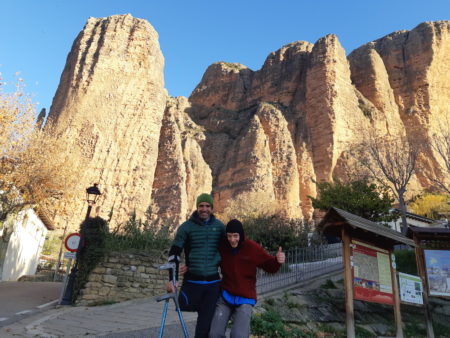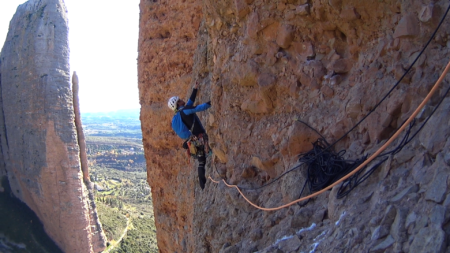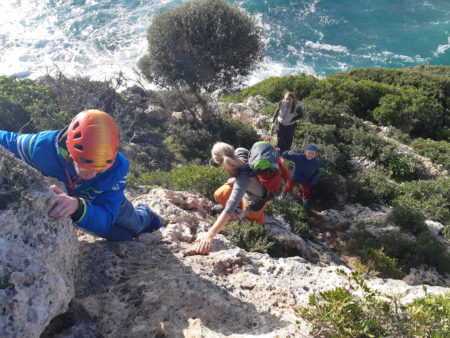Why not going outdoor for Paraclimbing? Indoor is nice, but climbing outdoors is much better!

However, there are some aspects you might know or take into consideration: While holds and walls are easy to read on artificial walls, everything is a bit more complex and hidden outdoor. Rock can be very different, and those with less features (granite, basalt) are probably harder for Paraclimbers than those with a lot of features (Limestone, conglomerate). As always, rock can have very different characteristics locally. There might be sandstone with a lot of features, but also sandstone with almost blank walls and very clean structures. Bottom line: More features = more options = better for Paraclimbing.

Let us talk about safety. Rock and nature is not a certified and tested environment, its not just clip in and go on – a double check can save your life! Do not expect bolts to be within a 1.5 m distance, there might be parts where you better not fall on lead. And sure, holds can break, bolts can be corroded and in worst cases even break and there can also be massive rockfall depending on the structure of the rock / mountain. Helmet? You better bring one and put it on your head. Partner check? Never forget it! Knot in the end of the rope? Sure. Always keep in mind: The summit or ticking a route is optional, (healthy) comeback is mandatory!

Accessing the crag can be pretty adventurous for Paraclimbers. Be sure you can manage the approach, not every rock is standing right beside the parking lot. Sometimes long walks over uneven terrain or even small climbs may be necessary. Ask others who have been there before if an approach can be managed with crutches, wheelchair or how it looks like. Do not trust the approach time in the Guidebook, depending on your disability, it can easily be doubled or even more.
Approach is one thing, but keep the way back home in the back of your mind! You also need resources for that, so if you know it will be tricky, do not leave 100 % of your energy at the climbing crag . 😉
So if you ruled out all these things, you have the right crag in mind, you have the right partners to go there, the weather looks nice, just go there and e n j o y! Because that’s what climbing is about at the end of the day …
